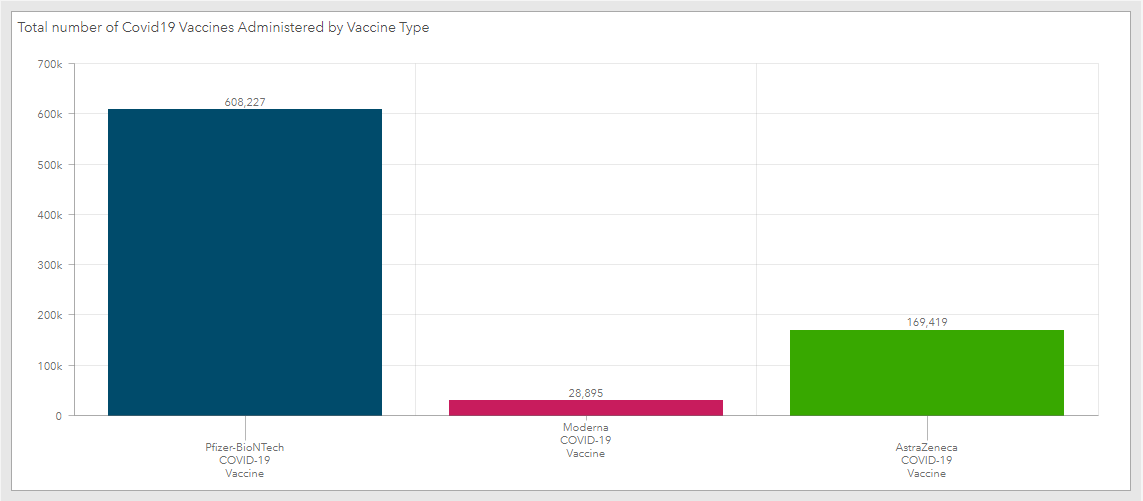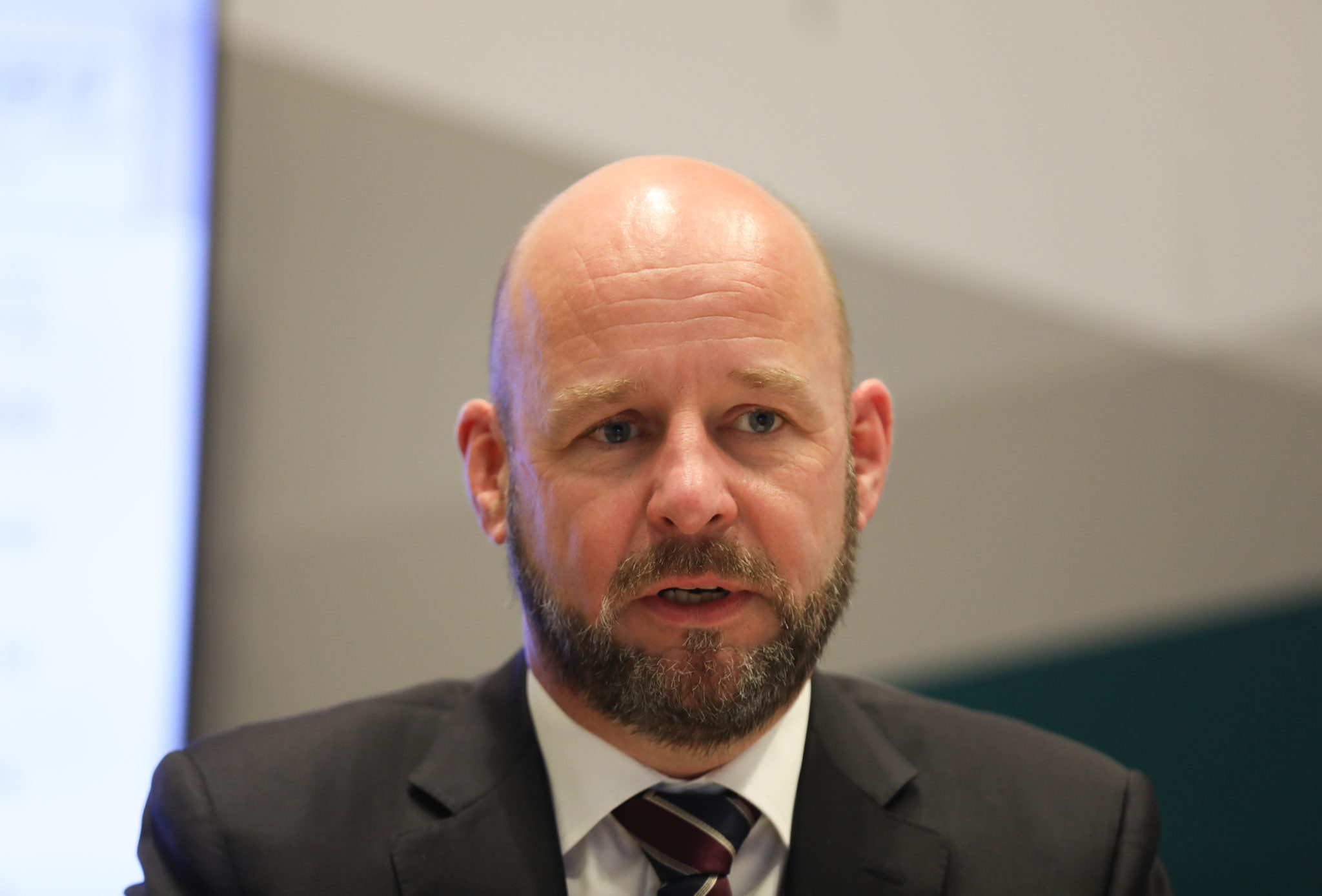Health officials have announced 411 new coronavirus cases alongside six further virus-related deaths.
It takes the death toll in Ireland to 4,687 and the national case total to 235,854.
This morning, there were 297 COVID-19 patients in Irish hospitals – 13 fewer than yesterday.
Meanwhile, there were 67 in intensive care, the same number as yesterday.
Of the cases announced this afternoon, 150 were in Dublin, with 31 in Donegal, 25 in Kildare, 25 in Wexford, 21 in Offaly and the remaining 159 spread across 17 other counties.
The 14-day rate of the virus in Ireland now stands at 161.1 cases per 100,000 people.
Offaly still has the highest rate in Ireland at 484.9 and there are now six counties with rates higher than 200 - one fewer than yesterday.
 The 14-day coronavirus rate in Ireland. Image: Department of Health
The 14-day coronavirus rate in Ireland. Image: Department of HealthThe Deputy Chief Medical Officer Dr Ronan Glynn said it is critical that people work together to prevent a “significant fourth wave” over the next two months.
“Together with all of the basic public health measures with which we are all now so familiar, vaccination will significantly reduce risk of COVID-19 over the next relatively short period of time,” he said.
“It will radically reduce mortality when those over 70 are fully vaccinated but will initially have a smaller effect on hospitalisation and critical care until the wider adult population, especially vulnerable adults and those aged 50-69 years, are protected by vaccination.
“There is a critical window over the next eight weeks where any significant increase in close contact is likely to lead to a significant fourth wave of infection in the range of that experienced in January 2021.
“We can and should be optimistic for an enjoyable summer ahead but, in the meantime, we have to continue to work together to prevent a further wave of infection as we accelerate vaccination across society and maintain our health services.”
 Ireland's vaccination administration. Image: Department of Health
Ireland's vaccination administration. Image: Department of HealthAs of Sunday, a total of 806,541 vaccine doses had been administered in the State.
Some 580,857 people had received their first dose and 225,684 were fully vaccinated.
 Professor Philip Nolan, Chair of the NPHET Irish Epidemiological Modelling Advisory Group at a briefing in the Department of Health, 25-03-2021. Image: Leah Farrell / RollingNews
Professor Philip Nolan, Chair of the NPHET Irish Epidemiological Modelling Advisory Group at a briefing in the Department of Health, 25-03-2021. Image: Leah Farrell / RollingNewsThe Chair of the NPHET Modelling Advisory Group Professor Philip Nolan said the Reproduction number of the virus is currently estimated at between 1.0 and 1.3.
“If the epidemic is growing again now, the doubling time is estimated at 35 days or longer,” he said.
“When comparing the risks of levels of social mixing now and over the coming months with that which applied in 2020, we need to take into account the B.1.1.7 variant and how easily that transmits.
“We must also take account the vaccination-induced immunity that will progressively protect us and make it more difficult for the virus to transmit.
“Vaccination will contribute greatly to the easing of measures in the coming months, however now we need to keep transmission as low as possible so that vaccination of the population can take place and have the desired effect.”
Meanwhile, Professor Pete Lunn from the Behavioural Research Unit at the ESRI said the behaviour of a small minority is “increasing the risk for all of us.”
“Even this minority are trying to stick to restrictions in most aspects, but they are nevertheless visiting other homes,” he said.
“It would be much better if people could instead meet at outdoor locations and maintain distance."
Dr Siobhán Ni Bhriain Consultant Psychiatrist and Integrated Care Lead at the HSE said some people who have recovered from the virus have reported symptoms of ‘long-COVID.’
She said the best defence against long-COVID is to adhere to public health advice.














